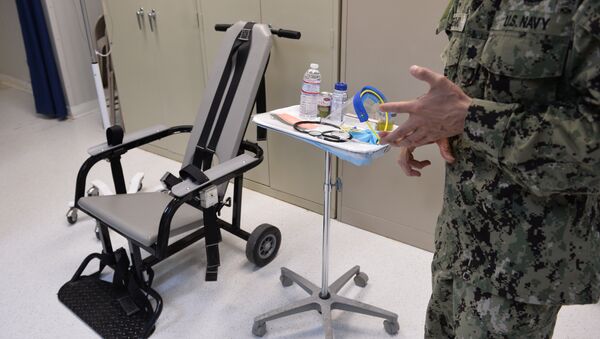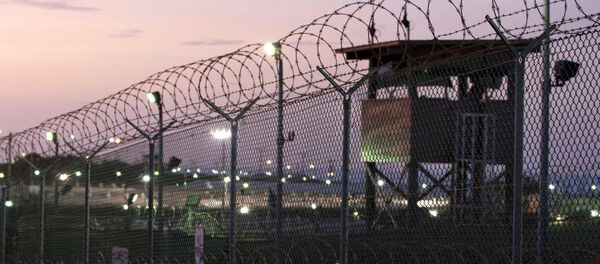Claiming that First Amendment rights are trumped by the need to prevent damaging proof of torture practices from being made public, the US Court of Appeals for the DC Circuit Court denied a request from the Associated Press and 15 other news organizations for the release of the videos.
"The government's interest in ensuring safe and secure military operations clearly overcomes any qualified First Amendment right of access," said DC Judge A. Raymond Randolph, according to Military.com.
In doing so, Randolph overturned an earlier federal district judge's ruling that allowed the release of the videos, including those showing former Gitmo prisoner Abu Wa'el Dhiab restrained and force-fed with a tube during a hunger strike.
A native of Syria, Dhiab was imprisoned at Gitmo for 12 years until his release in 2014. He was accepted by Uruguay, along with five other detainees who, during the last four years of their imprisonment, had engaged in a hunger strike protesting their confinement.
Seeking to provide the American public with evidence of how political prisoners are tortured in the US, the media outlets were rebuffed by Randolph, who stated that the evidence "would likely impair national security," and supply "terrorist elements with propaganda to fuel their continued global hostilities against the United States."



